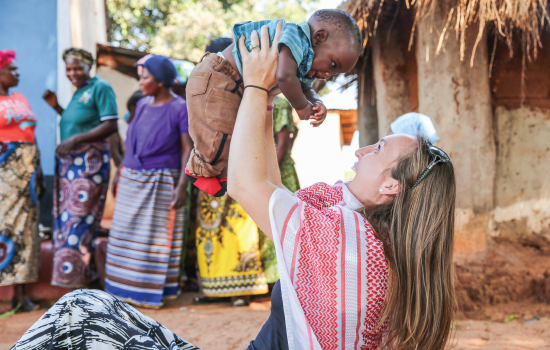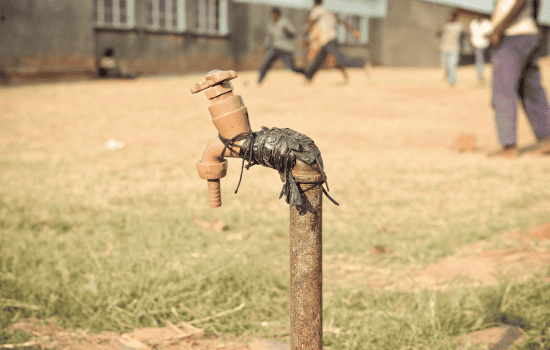Sarah Walker recently traveled with Blood:Water on a Vision Trip to see the work of one of our local partners firsthand. In today’s blog, she shares what she experienced when she arrived in Zambia.
—
Before I went, I thought Africa was poor, and that America had great wealth. And in some ways, that’s true. But what I found was that there are many kinds of wealth and many kinds of poverty. Africa is very, very rich in ways that most Americans have probably never experienced.
Africans are abundantly rich in community, rich in relationship with God and one another. The Africans I met were rich with contentment and joy bubbling over from their very souls – rich in many ways that make up an even truer expression of humanness than the possession of money can create.
We didn’t spend our time in Zambia with any illusions of saving anyone from their poverty, or even of being saved from our own materialistic blindness. We didn’t find anyone there who was interested in our charity. What we did find was a nation full of strong, wise, vibrant people. People who welcomed us into their communities with songs and dancing and laughter, and made us join right in and dance alongside them. People who worshipped God boldly, and praised Him for His great goodness toward them. People who were proud of their progress toward achieving clean water and sanitation for their families, and were eager to show us the signs of their success in their homes and in their communities. And we were proud for them!
This trip has made me rethink everything about how I give of my own money. It’s so easy to think of ending the clean water crisis, for example, with statistics and engineering data – if we come in and build enough wells, clean water will be accessible to all. Right?
But on our very first day in Zambia, we drove past multiple wells that had been built by well-meaning rich foreigners, only to now sit rusting and abandoned. Which could have happened for any number of reasons – appropriateness of the technology for the cultural context it was placed within, local knowledge of the machinery and how to repair it when it breaks, local availability of the materials it was built with, and the level of community involvement and participation in the decision to put a well there in the first place. I’m not saying wells don’t still need to be drilled – they do! – but none of these more complex considerations had even crossed my mind until I walked past one broken down well after another.
—
Check back tomorrow to hear how Sarah has been impacted by her time in Zambia.



